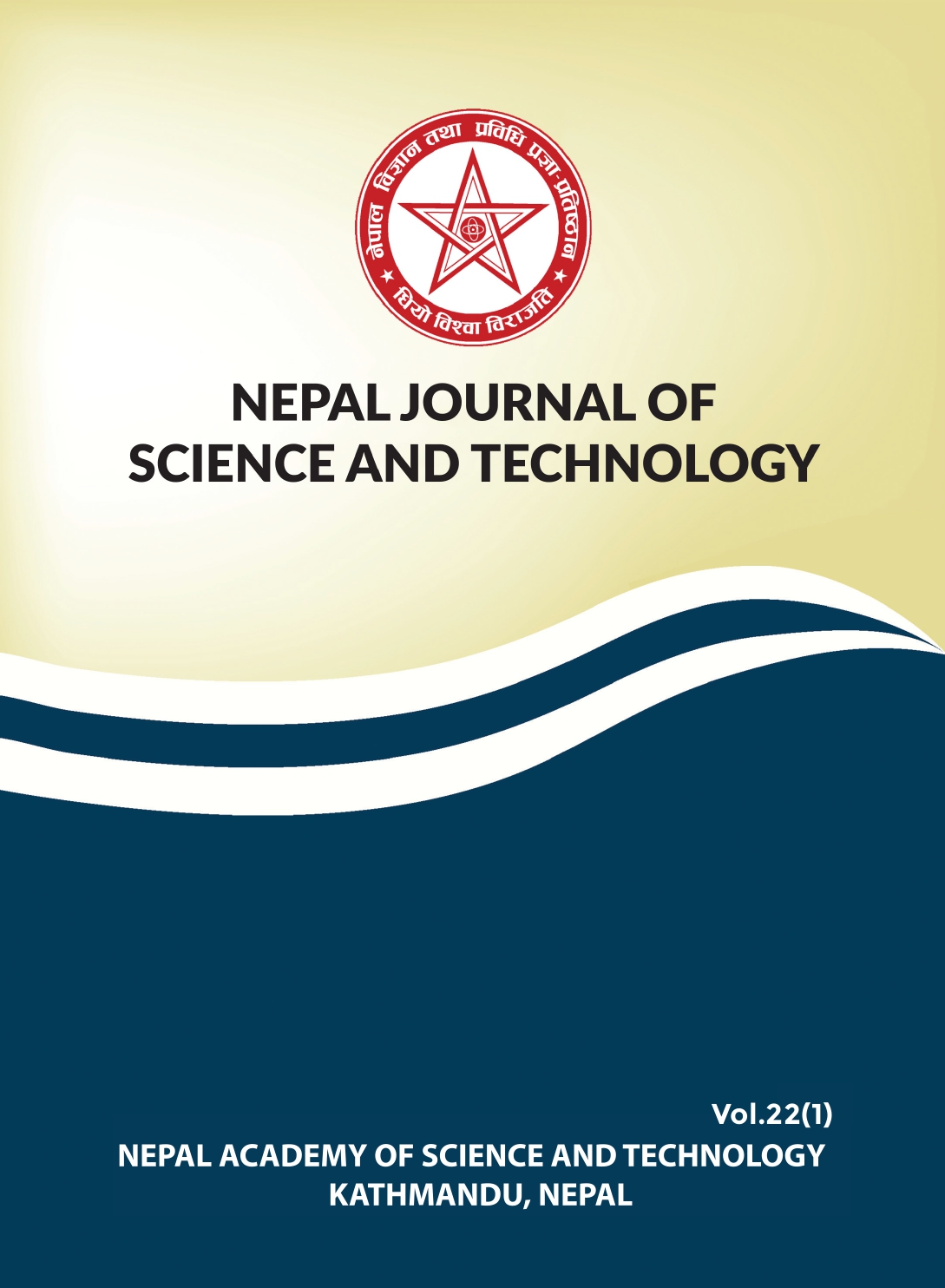Factors Associated with the use of Institutional Delivery Services by Mothers in a Community of Gorkha, Nepal
DOI:
https://doi.org/10.3126/njst.v22i1.67157Keywords:
Delivery, factors, institution, serviceAbstract
Institutional delivery is a delivery that takes place at any medical facility staffed by skilled delivery assistance. A descriptive cross-sectional study design was adopted to find out the factors associated with institutional delivery service utilization among mothers. The study was done in wards 6 and 11 of Gorkha Municipality in Gorkha district. The sample size was 80. The data were analysed using SPSS 16. The majority of the respondents, i.e., 97.5%, were literate, and 60% of the respondents were homemakers. 38.5% of the respondent’s husband was involved in foreign employment. Obstetric factors for institutional delivery depict nearly three-fourths of the total respondents, i.e., 72.5% of mothers marry at the age of 15-20 years; nearly half, i.e., 48.8% of mothers deliver babies at the age of 21–25; and the majority of the respondents, i.e., 97.5%, visited for an ANC checkup more than four times. Only 18.8% had complications during pregnancy. The majority of the respondents, i.e., 97.5%, thought health institutions were the best place for delivery, of which 60.3% chose health institutions for quality services. The majority of the respondents, 93.8%, delivered babies at health institutions. Enabling factors for institutional delivery depict nearly two-thirds of the respondents, i.e., 62.5%, making their own decisions. The majority of the respondents, i.e., 85.7%, received delivery services by a nurse; nearly half of the respondents, i.e., 47.5%, travelled 30–60 minutes. More than half of the respondents (55.0%) went to health institutions by vehicle. Similarly, 57.1% of the respondents received health care within 15 minutes. The present study concluded that, in spite of the higher proportion of institutional delivery, no significant association was found among the selected socio-demographic variables, i.e., educational status, spouse educational status, ethnicity, religion level, and monthly income.
Downloads
Downloads
Published
How to Cite
Issue
Section
License
Copyright (c) 2023 The Author(s)

This work is licensed under a Creative Commons Attribution-NonCommercial 4.0 International License.
Authors retain copyright and grant the journal right of first publication.




